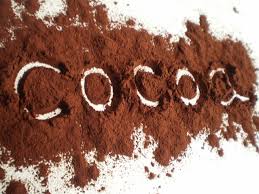A new study in Nature Neuroscience finds that high doses of flavanols – compounds isolated from cocoa – may reverse the normal memory loss that comes with age. The researchers created a drink with very high flavanol content for the study’s participants who ranged from 50 to 69 years old and didn’t suffer from any kind of memory loss other than what you would expect with normal aging. The good news, say the researchers, is that this study is the first to show a causal link between ingested flavanols and changes in memory and brain function. The bad news is that you probably won’t see the same benefits from administering yourself larger doses of chocolate bars.

The cocoa drink was prepared by Mars , Inc. (the chocolate makers), which also funded the study in part. The Mars researchers used a proprietary method of isolating the flavanols, which is necessary since most methods degrade the compounds during processing.
Researchers at Columbia University Medical Center scanned the brains of the 37 participants and gave them memory tests prior to the flavanol intervention. Half of the participants drank a high-flavanol drink (900 mg per serving, with 138 mg of the flavanol epicatechin) or a low-flavanol drink (10 mg per serving, with less than 2 mg epicatechin) once a day for three months. Brain scans and memory tests were repeated at the end of this period. The team was particularly interested in an area of the brain called the dentate gyrus, part of the hippocampus, and known to be affected in normal age-related memory loss, but not in Alzheimer’s disease.
The results were striking: Participants who’d had the high-dose flavanol drink had measureable improvements both in their memory tests and increased activity in the dentate gyrus. The authors say that the memory improvements were so robust that they were equivalent to taking away a couple of decades’ worth of aging.
“If a participant had the memory of a typical 60-year-old at the beginning of the study, after three months that person on average had the memory of a typical 30- or 40-year-old,” said study author Scott Small, who directs the Alzheimer’s Disease Research Center in the Taub Institute at Columbia University Medical Center.
Though the authors say the effect appears to be causal – that is, the flavanols actuallycaused the memory improvements and neurological changes – much larger studies are needed to confirm the findings. Previous studies have suggested similar effects, however, and a separate study at Brigham and Women’s Hospital in Boston is currently testing the effects of flavanols on cardiovascular health. Flavanols including epicatechin are also found in tea, apples, grapes, blackberries, and cherries. Mars already markets a flavanol-rich supplement called CocoaVia.
Small cautions that people shouldn’t go out and buy large volumes of chocolate in an attempt to replicate the study results for themselves. The doses used in the study were much higher than what you could get from eating chocolate even by the fistful – and the fat and sugar present in store-bought chocolate would defeat the purpose anyway.
“This is really not about chocolate,” Small told HealthDay. “And it would be detrimental to one’s health to try and run out and get flavanols from chocolate, which exist in chocolate, but in miniscule amounts.”
So the “Chocolate Boosts Memory” headlines are a little misleading. The real value of the study is that it adds to the existing evidence that what we consume, especially over a lifetime, can affect the function of our brains. Eating chocolate bars probably won’t have much of an effect (though some dark chocolate, judiciously, probably won’t hurt). But assuming future studies back this one up and determine the best dosing, the next few years might bring some interesting, high-potency cocoa products to market.

